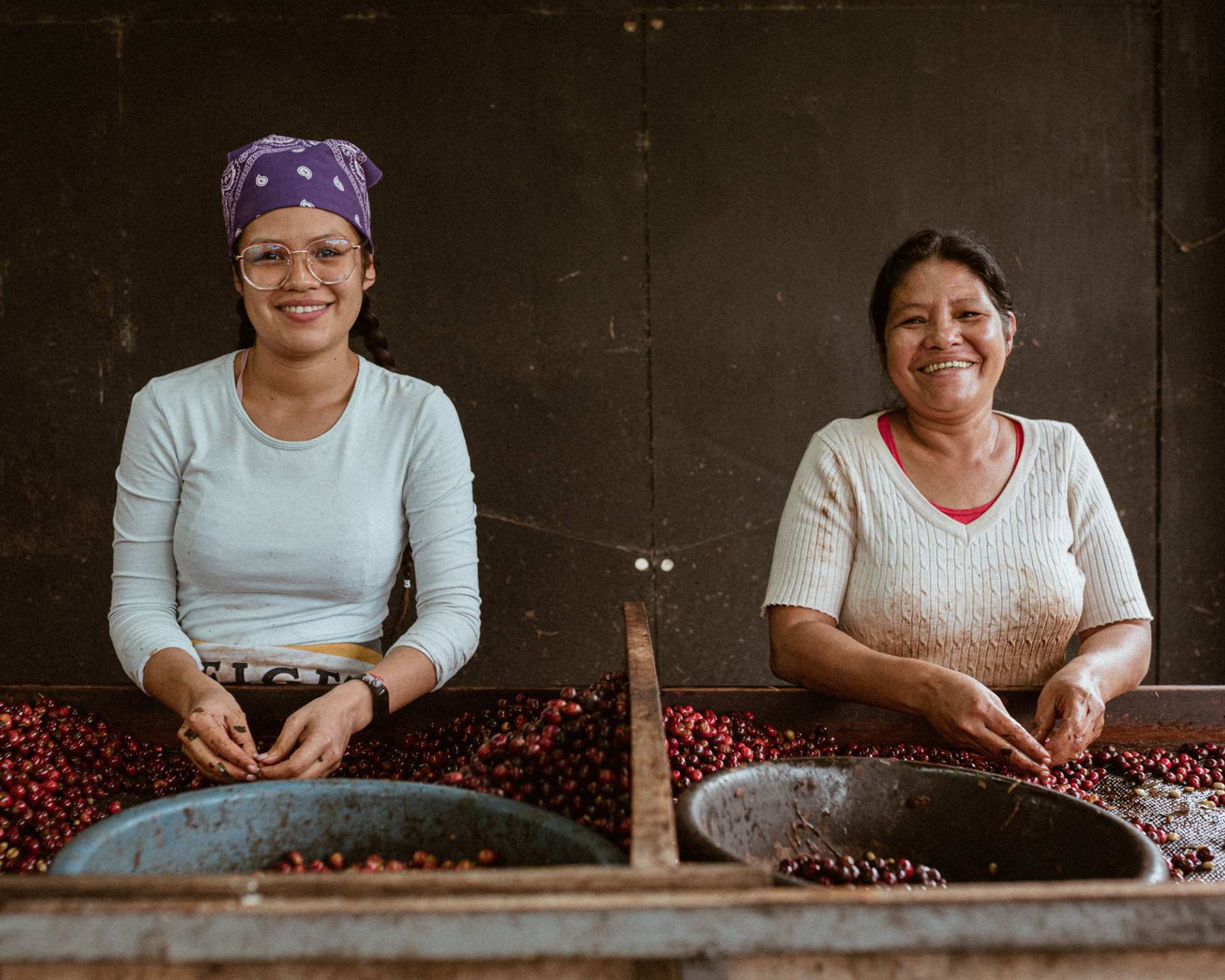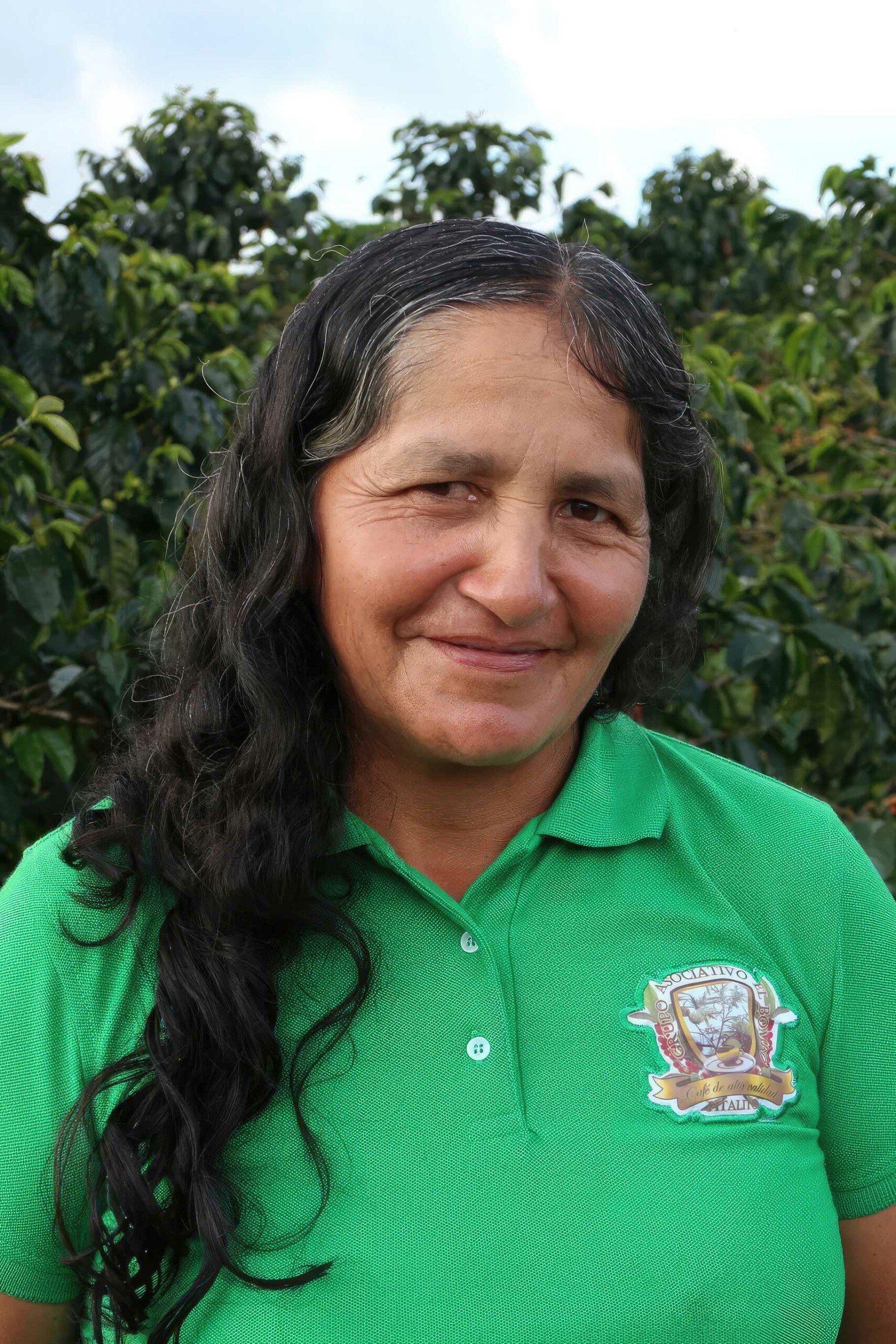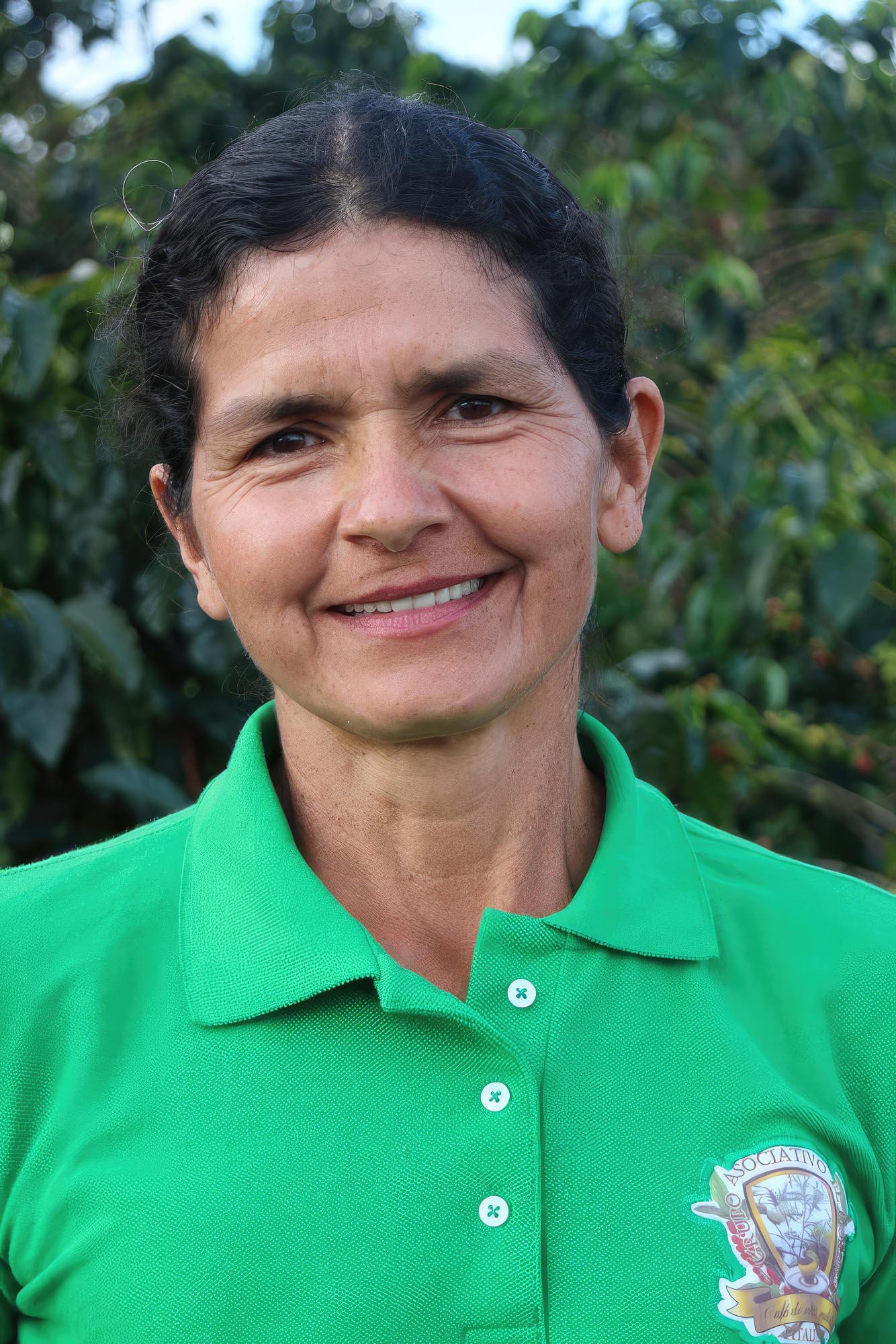Although coffee is for everyone, the coffee industry is a male sector. Due to the social dynamics of the world we live in, it has happened in coffee as it happened in the world of cooking: from being a task performed by women in the domestic sphere without any recognition, it became a professionalised and specialised job, a challenge for men. However, the advantage of the sector has been that it was born in a world and in an era much more advanced in terms of equality. So, while it is true that the majority of baristas and roasters in coffee shops and competitions are men, it is true that in the not-so-nascent speciality coffee industry, more and more women have joined the ranks. At NOMAD, 18 out of 39 are women, and we wouldn’t be the same without them.

However, behind the scenes, there is invisible work by thousands of women worldwide that takes place in coffee farms. They plant, tend to the crops, harvest, and participate in coffee processing, but their names are not recognized anywhere. They are part of the families that work on coffee at its origin, and it is their efforts that allow us to enjoy a perfect cup of coffee.
With the idea of highlighting the work of women coffee producers, the Women and Coffee initiative was born from Asobombo, an association of coffee producers who value their coffee to invest in sustainable practices on their coffee farms. In the Colombian regions of Huila, Cauca, Nariño, and Tolima, 85 women producers now see their coffee stand out from the rest due to its history and the fact that it is grown under the requirements of the organic certification it holds. Furthermore, Asobombo ensures that the remuneration received by the producers is fair. In collaboration with coffee exporter Sucafina, their coffee now reaches NOMAD for espresso and filter.
“The Colombian coffee industry owes a lot to women,” says Alejandra Imbachi, daughter of one of the Asobombo producers. “We have Juan Valdés and Professor Yarumo, but we need to give voice to the women who cultivate coffee and who have a history of struggle and survival, and who are often victims of the armed conflict in the areas where they farm.”

To this day, the work of a woman who cultivates her coffee farm is very demanding: they are the heads of their households, responsible for managing their plots, which range from 1 to 5 hectares in size, and for all the actions required for production, from preparing the land to pulping and drying, including hiring personnel when possible.
Asobombo has also made great efforts to improve the lives of the women participating in this project. Through a deep analysis of the life circumstances of each of them, they identified issues such as a lack of equity within their families, unused land for food cultivation, imbalanced diets, and excessive dependence on supermarkets. Many of these women were not familiar with the coffee they produced or how to improve its quality.

“In this way, the association created spaces and dynamics for women to understand the importance of their work, established food safety practices and training in healthy eating, and encouraged training opportunities to improve the productivity of coffee farms and enhance the quality of post-harvest processes,” explains Jhon Edison Díaz, manager of Asobombo. The implementation of these measures has optimized both the work of the 85 coffee producers and the lives of them and their families, benefiting a total of 285 people.
“Our parents want to provide us with better future options to get us out of the farms, but when we leave, we see that there are still many opportunities for us within the farm that will allow us to improve the quality of life for the family,” says Imbachi, who acknowledges that generational transition is very challenging in rural areas. “But the city is not as easy as it seems either. We need to impact the lives of the producers and coffee farming so that there is no generational transition but rather an addition of children to the family business. The countryside is no longer seen as a punishment; today, it is an opportunity to work on a coffee farm. Seeing your name on a sack and your coffee being sold in another country motivates people who want to do it well.”